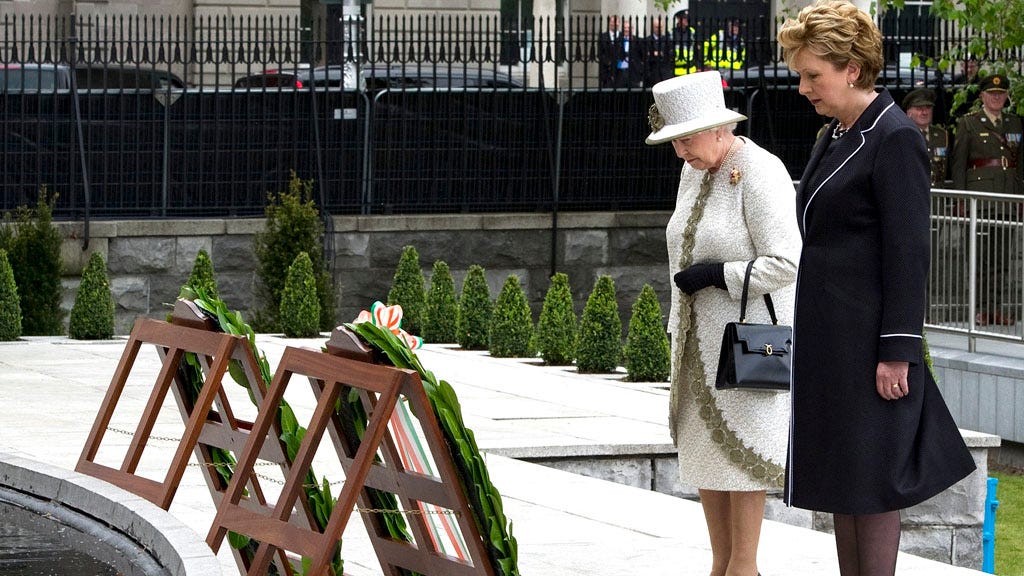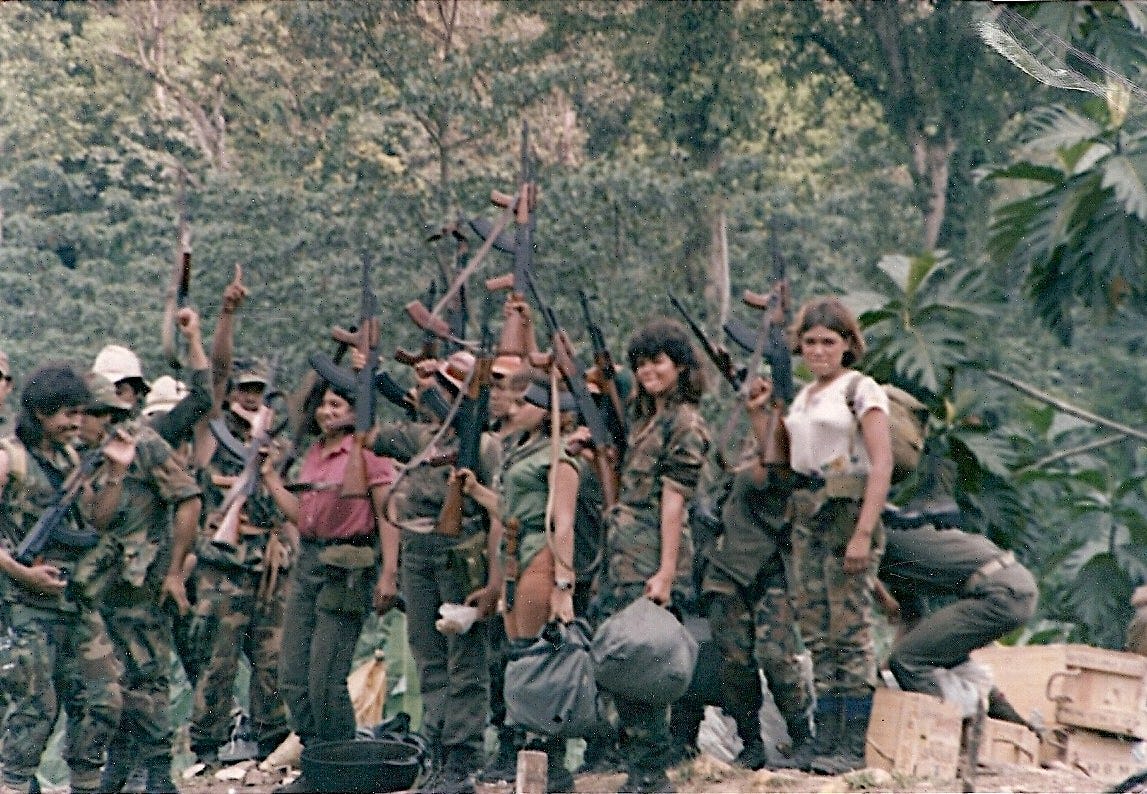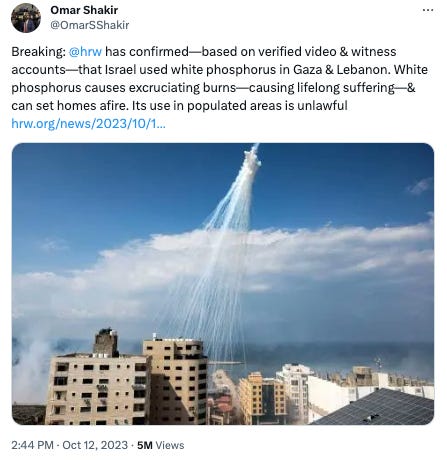What Separates Terrorism From Legitimate Resistance?
Killing civilians is terrorism, whether or not you have a seat at the UN.
Hey folks. Like everything else discussing Israel-Palestine, this is a heavy subject that is sure to bring charged feelings. If you’re not feeling up for another discussion of violence, it’s perfectly okay to skip this one. If you do decide to read and engage, I ask that everyone do so in good faith and from the starting point that all of us want peace, justice, and the right to self-determination for all.
In Solidarity, Joe
Following the outburst of violence in Israel-Palestine, politicians and pundits have made frequent use of the word “terrorism.” This label, as well as the personal derivative of “terrorist,” implies that one is an evil actor whose only motivation is a desire to kill and destroy. Yet we also know that calling someone a “terrorist” is frequently used to slander the armed opponents of an established nation-state. As the saying goes, “One man’s terrorist is another man’s freedom fighter.”
As “terrorism” is being used so loosely in the current situation, it’s important to understand what separates actual terrorism from legitimate armed struggle. By distinguishing the two, we’ll be able to recognize the differences so that we can thwart attempts to deceive us while condemning actual terrorist acts, whether they are committed by state or non-state actors.
The “T” Word
Oxford defines terrorism as:
the unlawful use of violence and intimidation, especially against civilians, in the pursuit of political aims.
Let’s break this down into its three components.
The first phrase, “the unlawful use of violence” hits on the heart of terrorist activity. In order for something to be terrorism, it must be violent or carry the implication of violence (“intimidation”). While everyone agrees non-violent acts aren’t terrorism, where things get murky is in determining what is “unlawful.” As it is a government that makes the laws, oppressive regimes are sure to decry any and all armed resistance against them as “unlawful.” For example, for centuries, the British government called Irish nationalists “terrorists” for fighting the British soldiers occupying Ireland. But today, even the British Monarchy admits this was an incorrect label and that the Irish had a legal right to resist acolonization.

Therefore, we shouldn’t base our understanding of what is and isn’t terrorism on a single nation’s laws, as there is a long precedent of individual nations incorrectly calling all their adversaries “terrorists.” Instead, it is much more helpful to base our determination on international law. Article 51 of the United Nations Charter states that occupied groups do have the right to “individual or collective self-defense.” In the specific context of Israel-Palestine UN Resolution 45/130 clarified this point, saying:
“(The United Nations) Reaffirms the legitimacy of the struggle of peoples for independence, territorial integrity, national unity and liberation from colonial domination, apartheid and foreign occupation by all available means, including armed struggle.”
With the United Nations steadfastly stating that occupied people have a legal right to armed resistance against occupiers, we see that simply fighting an occupying force cannot be considered terrorism.
But this does not mean all violence from occupied or oppressed groups is free of being labeled terrorism. “Especially against civilians” is an important phrase in the definition of terrorism, as it separates legitimate targets from illegitimate ones. The rationale for this distinction is clear: military assets, such as bases, soldiers, politicians, and vehicles are the manifestation of a state’s imperialist, occupying policy. Those who choose to exercise their right to fight back against the occupying policy can do so by attacking these military targets. But what they cannot do is target innocent civilians, who have no say in the matter and were simply unfortunate enough to be born near the conflict.
The difference between targeting military personnel and civilians is the heart of the issue. For me, it is what draws a line between legal anti-colonial resistance and terrorism. If someone attacks military targets, I am steadfast in rejecting any notion they are a terrorist. But if someone deliberately attacks civilians, then I am equally steadfast in calling them a terrorist.
The final phrase of the definition, “in pursuit of political aims,” is trivial, as its only differentiates between a terrorist and a regular murderer. If someone were to shoot another for no reason, they would be a murderer. But if they shot someone based on a political motive, that makes them a terrorist.

Equally important as to what is in the definition of “terrorism” is what is not in the definition. Nowhere does it say that terrorism is exclusive to non-state actors, nor does it say that established nation-states can’t engage in terrorism. Far too often the American political-media establishment has tried to position anything the US military does as legitimate violence, while anything an unofficial state actor does as terrorism. This is incorrect, as it does not matter who is doing the illegal, political violence against civilians, just that it is being done. No matter if a civilian is killed by an American soldier or an Al-Qaeda fighter, terrorism is terrorism, regardless of whether you have a seat at the United Nations.
Given an understanding of the definition, it becomes easier to decipher and separate the legitimate accusations of terrorism from the illegitimate.
For example, during the Lebanese Civil War (1975 - 1990), the barracks of American and French soldiers were bombed in Beirut, killing close to 300. Though President Bill Clinton was quick to call the bombing an “act of terrorism,” that was incarnate. The target was a military installation, and whichever Lebanese group carried it out (responsibility is still disputed) had a legal right under the UN Charter to fight against foreign soldiers on their land. Alternatively, an obvious example of terrorism is the November 2015 ISIS attacks in Paris. In a coordinated plan, terrorists detonated bombs at a soccer game, shot up cafes, and took hostages in the Bataclan theatre. The attacks killed 130 innocent civilians and injured hundreds. This was not legitimate violence, but naked terrorism.
Israel-Palestine
That brings us to Israel-Palestine. As previously covered, Palestinians have a right to armed resistance against Israeli occupiers, as established under international law, but they do not have a right to target innocents. There are many armed groups that make up Palestine’s resistance forces, each with its own creeds, charters, and strategies. Undoubtedly, the most infamous is Hamas, which took responsibility for the October 7th attack that left over a thousand Israelis — civilians and soldiers —dead.
Ever since Hamas’ surprise attack, the Israeli government has responded with what can only be described as state terrorism. Seeing Gazans as collectively responsible for Hamas’ actions, Israel has placed a blockade on Gaza, indiscriminately bombed the city, and made it clear that they view Palestinian citizens as legitimate targets. In the below video, an Israeli soldier admits that “the war is not just with Hamas, but with all the civilians.” (4:30) This is terrorism, through and through.

Many will retort this by saying that Hamas are “the real terrorists,” and that therefore Israel’s response is justified. First, that is unequivocally collective punishment. Israel is punishing — and even killing — innocent Palestinians for actions they did not commit. That is a war crime and a clear admission that Israel is engaging in terrorist activity.

Second, the actions of Hamas fighters do not excuse the actions of Israel and its numerous backers, namely the United States. I’m comfortable calling Hamas a terrorist organization, as its charter makes no differentiation between attacking Jews (civilians) and the Israeli state and military (legitimate targets). But if we are to do so, then we must be consistent in labeling Israel, the United States, and the numerous other nations enabling the ongoing Gazan genocide as terrorist actors, who have conducted far more terrorism than their adversaries ever could.
Thank you for reading. I hope this post brought important nuance to your understanding of political violence and the current situation in Gaza.




I appreciate the thoughtful way you are going about trying to make sense of the senseless. Words do matter and so you are spot on that a clear understanding of them is critically important to the process of understanding events. There is much we don't know still about this tragedy, but I think we can all agree that simply placing blame doesn't solve problems, neither does the tit for tat circular reasoning. Thanks for being courageous enough to dive into the muck.